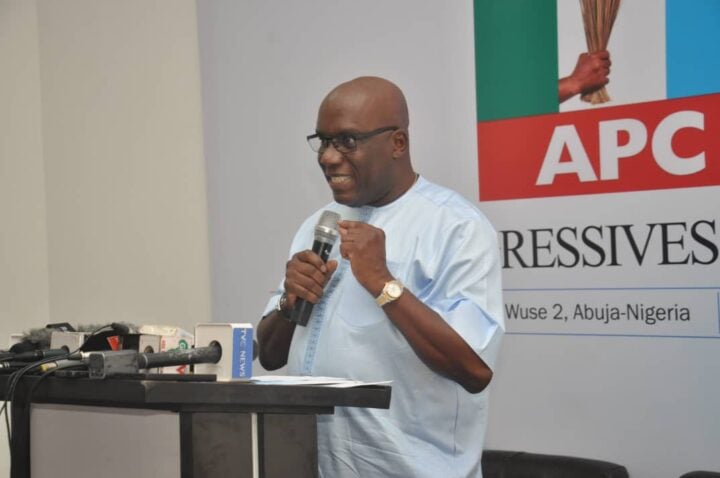Doyin Okupe, a former presidential aide, has opposed Aliko Dangote’s call for the complete removal of petrol subsidy.
In a Bloomberg interview on Monday, Dangote, founder of Dangote Petrochemical Refinery, asked the federal government to end petrol subsidy.
“I think it is the right time to take away the subsidy because all countries have gotten rid of it,” Dangote said.
But speaking to NAN on Tuesday, Okupe said removing petrol subsidy could lead to an abrupt hike in the cost of the product.
Advertisement
“With utmost respect, I disagree with Aliko Dangote on his suggestion that the government should completely end the subsidy now,” Okupe said.
“Petrol is the economic oxygen of Nigerians, whether rich or poor. This is not the situation in other countries of the world.”
He proposed selling crude oil to local refineries at half the international price, which he believes could bring down petrol costs to between ₦500 and ₦600 per litre.
Advertisement
Okupe argued that local production would ease foreign exchange pressure and benefit Nigerians, who heavily rely on petrol.
“For instance, the price of Nigerian crude per barrel is $77, we can decide to sell to Dangote refinery at $35 or $37 per barrel,” Okupe said.
“After making adjustments for processing fees and profit margins, the pump price of petrol can actually come down to ₦500 or ₦600 per litre. This will definitely bring major relief, comfort, and succour to the masses.”
Okupe also highlighted the advantage of using crude oil allocated for local consumption, which is outside the Organisation of the Petroleum Exporting Countries (OPEC) quota.
Advertisement
He stressed that this allocation, being a domestic matter, would allow for internal adjustments to benefit Nigerians directly.
“We can use the opportunities that these local refineries provide, ensuring adequate fuel supply through the daily crude oil allocated for local consumption,” he said.
“This will give us the flexibility to manage fuel prices domestically without the pressure of international oil market dynamics.”
Advertisement







